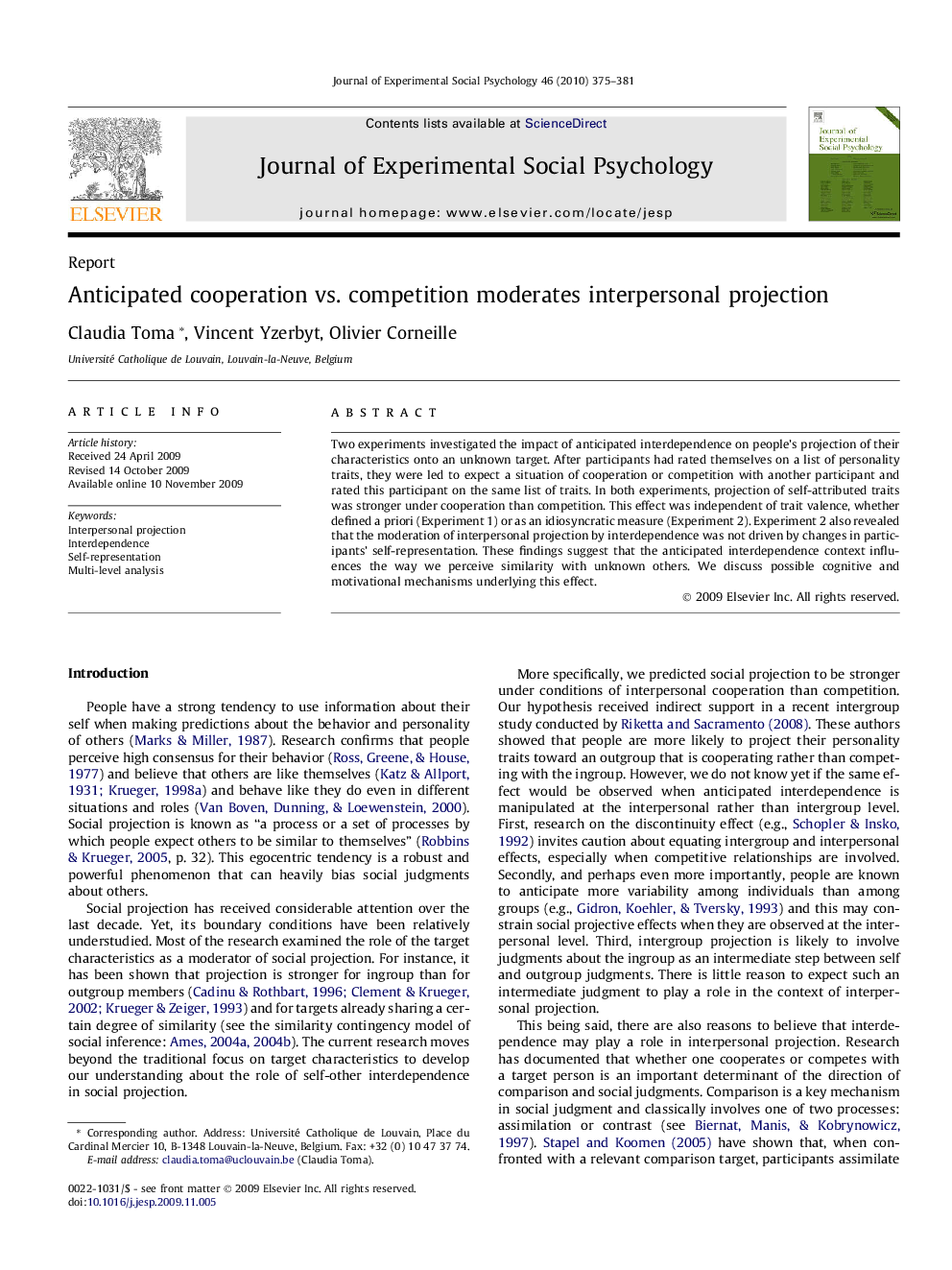| Article ID | Journal | Published Year | Pages | File Type |
|---|---|---|---|---|
| 948462 | Journal of Experimental Social Psychology | 2010 | 7 Pages |
Two experiments investigated the impact of anticipated interdependence on people’s projection of their characteristics onto an unknown target. After participants had rated themselves on a list of personality traits, they were led to expect a situation of cooperation or competition with another participant and rated this participant on the same list of traits. In both experiments, projection of self-attributed traits was stronger under cooperation than competition. This effect was independent of trait valence, whether defined a priori (Experiment 1) or as an idiosyncratic measure (Experiment 2). Experiment 2 also revealed that the moderation of interpersonal projection by interdependence was not driven by changes in participants’ self-representation. These findings suggest that the anticipated interdependence context influences the way we perceive similarity with unknown others. We discuss possible cognitive and motivational mechanisms underlying this effect.
